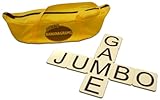Wired Magazine has a
nice article about Werewolf, a sort of parlor game that is apparently becoming very popular in certain circles.
A game called "Mafia" was invented in the mid-eighties and spread rapidly. It showed up in the United States and was then modified to have a more fitting werewolf theme by Andrew Plotkin (a.k.a., Zarf) who then popularized it on the Internet. Andrew Plotkin is a major figure in the indie Interactive Fiction community which produces text adventures that are the evolutionary descendants of the old Infocom games.
Just as you might refer to Bananagrams as like Scrabble without a board (or pauses or lots of other things...), Werewolf has been described as like poker without cards. In a typical game, two players are secretly designated as Werewolves and the rest are Villagers. The game is divided into a series of day and night turns. During the nighttime turns, everyone closes their eyes except the Werewolves, who silently pick a Villager to "kill". They indicate this to a moderator who removes that person from the game. During the daytime turns, the Villagers have the opportunity to pick someone that they think is a Werewolf and lynch them. Since the identities of the Werewolves are secret, the Werewolves can participate in the debate over who should be killed, trying to maintain their cover and divert suspicion to someone else. The object of the game for the Villagers is to identify and eliminate all the Werewolves. To win, the Werewolves only have to survive until there are the same number of Villagers left as Werewolves.
It is a game of persuasion and bluffing and inference. It's very interesting to see how different people play the game and what tactics are successful in convincing a crowd to choose a certain way.
Detailed instructions can be found on
Zarf's page on Werewolf. Or you might like the
extra details compiled by Wired, including how to host your own Werewolf game, a cheat sheet, and the many different extra roles that can be added.
All that you need to play Werewolf is a group of people, but if you'd like some fancy cards to designate who the Werewolves are and who plays the other roles, you can find a PDF of free Werewolf cards that you can print out
here (courtesy of
http://www.ee0r.com/proj/werecard.html). Or if you want to buy a more formal version,
the Looney Labs "Are You A Werewolf?" set
is pretty cheap. One could, of course, use any other scheme for designating the Werewolves. For instance: each player chooses a Bananagrams tile from a pool that is pre-arranged to have 2 or 3 W tiles for the Werewolves and enough E tiles for everyone else.
If you are looking for a game that is out of the ordinary, I can definitely recommend Werewolf.
 has to assemble them into a grid of words as quickly as possible. The first to finish their grid says "Zip!" and scores one point. You can keep track of the score by incrementing the two zippers built into the bag for the game pieces.
has to assemble them into a grid of words as quickly as possible. The first to finish their grid says "Zip!" and scores one point. You can keep track of the score by incrementing the two zippers built into the bag for the game pieces. 



![[French Bananagrams]](http://3.bp.blogspot.com/-qc0_1zkWFTY/UJVp8FEnQ8I/AAAAAAAAAl8/sIBlipGIDgQ/s400/FrenchBananagrams-smaller.png)
![If I stay there can be no party. I must be out there in the night, staying vigilant. Wherever a party needs to be saved, I'm there. Wherever there are words that need anagramming, I'm there. But sometimes I'm not because I'm out there in the night staying vigilant, watching, lurking, running, jumping, hurdling, sleeping. No, I can't sleep. You sleep. I'm awake. I don't sleep. I don't blink. Am I a bird? No. I'm a banana. I am Bananagrammer. Or am I? Yes, I am Bananagrammer. [applies chapstick]](http://3.bp.blogspot.com/-dSRky9uBohU/TlcvRsF73SI/AAAAAAAAAhU/sVIGfVGu7eA/s400/BGR-plot-medium.png)
